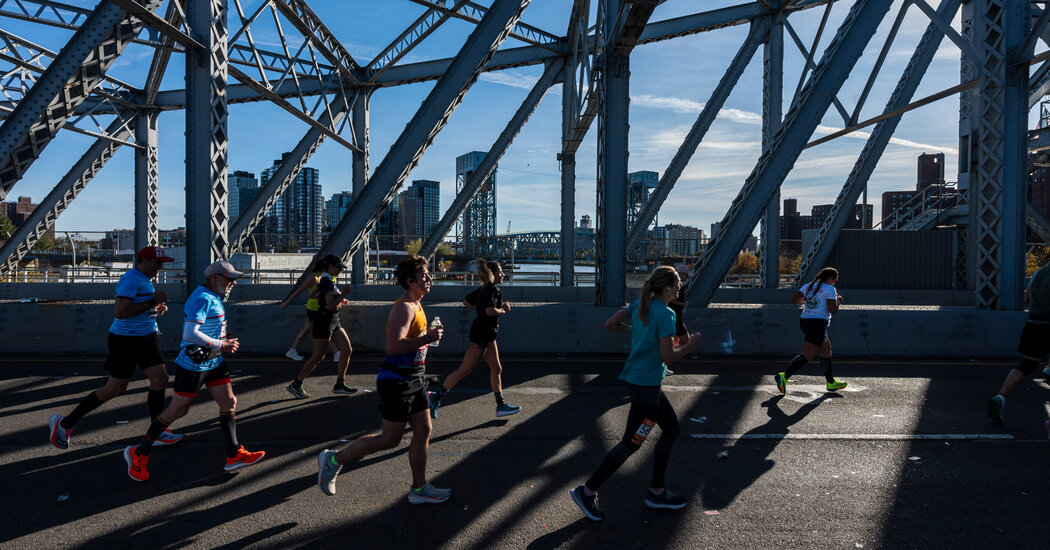Every marathon runner has had a bad day. Your legs start to feel heavy. You feel out of breath. Your goal time slips away.
It’s easy to blame nerves, or high humidity, or too much (or not enough) spaghetti the day before. But according to a recent study, there could be a less obvious culprit for a sluggish pace: Air pollution.
Researchers at Brown University analyzed a data set of millions of marathon finish times from major U.S. marathons over 17 years. They found that higher air levels of fine particulate matter called PM2.5 — the term for pollutants smaller than 2.5 micrometers in diameter — were, on average, directly associated with slower finish times.
This kind of particulate matter is often what drives air-quality warnings. For example, in New York State, an average PM2.5 concentration of 35 micrograms per cubic meter can trigger an air-quality health advisory.
The marathon researchers used data from nine races, including those in New York City, Boston and Los Angeles, between 2003 and 2019. They found that, for every increase of one microgram per cubic meter of these tiny particles, men’s average finish times were 32 seconds slower and women’s were 25 seconds slower. That means on even a moderately polluted day, times could be slower by minutes.
The post Take a Deep Breath? How Bad Air Affects Your Marathon Finish Time appeared first on New York Times.




